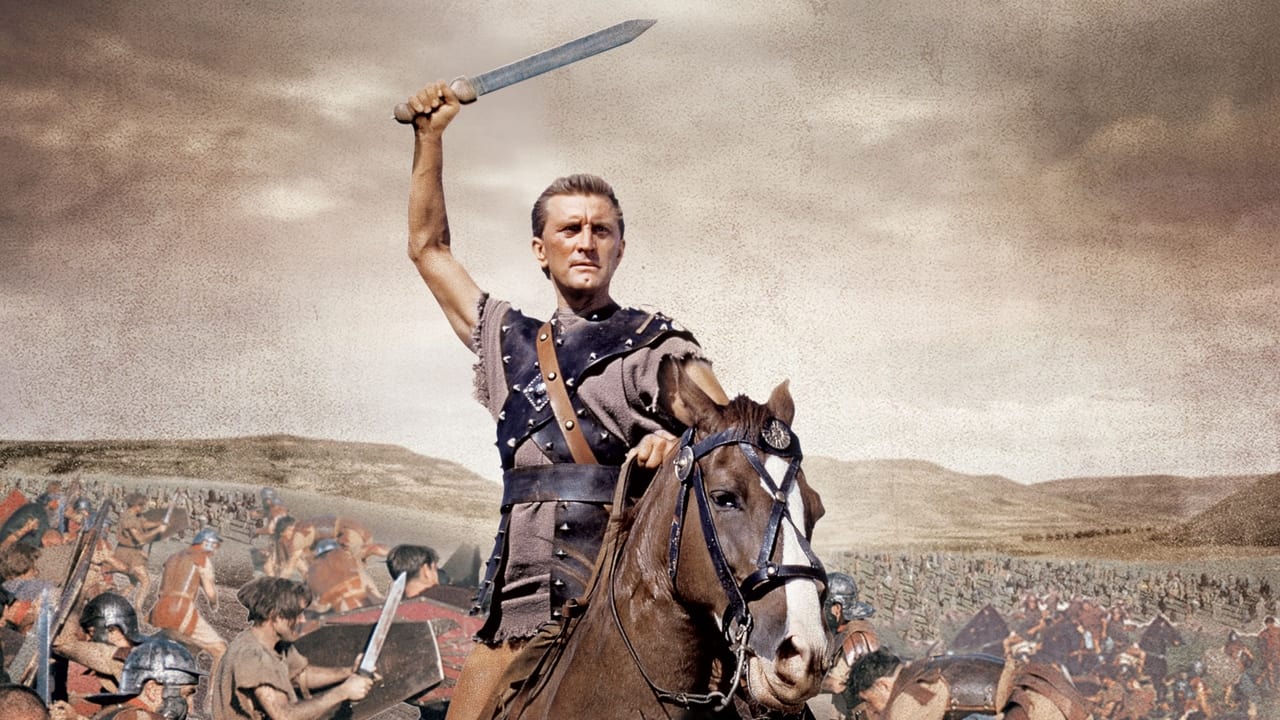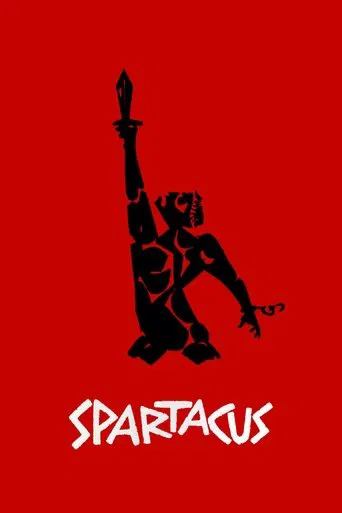

Very very predictable, including the post credit scene !!!
... View MoreBetter Late Then Never
... View MoreYes, absolutely, there is fun to be had, as well as many, many things to go boom, all amid an atmospheric urban jungle.
... View MoreThis is one of the best movies I’ve seen in a very long time. You have to go and see this on the big screen.
... View MoreFor younger people, not that young any more, used to Micheael Douglas' career, it is interesting to see his dad in action. Protagonist with traces more like Daniel Craig or Russel Crowe in our days. This epic shows Hollywood effort before technological resources of special effects. We can notice in scenarios, artificial or natural, and in extras use, the effort of creation of remarkable landscapes. With perceptive and pragmatic script, the movie chooses posterity instead of clichè. Its greatest merit is, in my opinion, reinforce that the conquest of freedom and relative peace of today were not natural, but result of profound clashes. Plus, it portraits the transition from democracy to authoritarianism of Rome.
... View MoreIn 1960, Stanley Kubrick released his colossal, towering, gargantuan, monumental, epic blockbuster SPARTACUS!!!! Okay, it isn't that spectacular, but it is a pretty dang good flick.Spartacus stars Kirk Douglas as an impudent Thracian slave. Thracians, as depicted in the film, were a race of people known for a particular physical characteristic - they had chin dimples the size of walnuts.Because Spartacus is such an uppity wisenheimer, he is sentenced to a life as a gladiator. Not that it's all bad. He gets to work out a lot and is "whipped" into incredible physical shape. Also, he receives occasional visits from another slave who also happens to be a tasty dish named Varinia (played as a genteel aristocrat by Jean Simmons).Douglas does a fine job as the brooding gladiator. Other standouts include Charles Laughton as Gracchus; not to be confused with Crassus, a gourmet who likes both escargot and shellfish, played by Laurence Olivier. Peter Ustinov provides some Oscar-winning semi- comic relief as the sniveling sycophant Batiatus.Another major character in the film is Antoninus, played by Tony Curtis. Tony (which is short for Antoninus) is a "singer" of "songs". His "songs" are just poems spoken in a Bronx accent.During the course of the movie, Spartacus escapes from gladiator school and assembles a considerable army of fellow undergraduates. Spartacus is well-loved by his men, and this is illustrated in one particularly moving scene.When the Romans capture Spartacus and his men, Crassus threatens to kill them all unless someone betrays their leader (who Crassus believes is a communist). Spartacus - in a heroic effort to spare his men - stands up to reveal himself, but Antoninus beats him to the punch. He jumps to his sandaled feet and yells out, "I'm Spartacus." This sets off a chain reaction. Another guy stands up and shouts, "I'm Spartacus." And another, "I'm Spartacus." Another, "I'm Spartacus." And so on.The Romans were very frustrated by this, because now instead of one pesky Spartacus, they found that they had to deal with a whole slew of Spartaci.Legend has it that this event spawned an entire generation of scofflaws. Whenever a centurion confronted a non-Roman for some infraction - say a speeding chariot - the inevitable happened: "Name?" "Spartacus." "All right wise guy. Thirty days in the dungeon."Anyway, this is a very good film that I highly recommend. And, if I may, I'd like to close out this "review" with one of Antoninus' "songs":"When the blazing wind hangs low in the western sky when the sun flies away to the mountain when the "song" of the crow scares the locusts from the fields and maidens sleep in the sea foam at last at twilight time..."Or something like that.
... View MoreI certainly think this is one of Kubrick's weaker movies. Or more correctly, it was Kirk Douglas' movie. Kirk Douglas was good in this movie and there are parts of the movie that are quite astonishing. It must have been hell of a job to direct an epic like this one. It was a very large crew after all. But kind of falls short with its "a man's gotta do what a man's gotta do" thing, being stretched too long although it could have been better if the movie was 120 minutes long. I mean, I love long, slow movies. Just as an example 'Lawrence of Arabia' or 'Once Upon a Time in America'. I just felt it overemphasized certain Things.It has a good story but the plot was kind of unfocused. Especially considering Kubrick directed it. It has a tendency to drag, focusing on things that are already clear. Also like Kubrick felt, it was full of stupid moralizing. All the "a man's gotta do what a man's gotta do", always being righteous with decisions although it is about a man who started a revolution. Sure it's a movie and it has the right to show what should be, instead of what was but it tended to go to ridiculous lengths about it. Spartacus, the way he was portrayed was exactly that.But I admit that it was a romantic movie and the battles in the movie were quite grand, with stunt men and extras doing pretty dangerous stuff. It was also very touching with Varinia, romantic and tender since there was chemistry between Spartacus and Varinia. Also their child. I shed some tears at the end of the movie. Also the story was very lively and I was amazed at the cast and extras of the movie. But overall, I feel that this is an above average movie.
... View MoreBased on the 1951 novel by Howard Fast rather than the events of the Third Servile War directly, the film depicts Spartacus' slave rebellion with all the flair and grandeur that 1960s Hollywood could muster. Directed by Stanley Kubrick, it is a thrilling story of freedom, political machinations and love set in the ancient world. It is a very well written film with often marvellous dialogue.At 43, Kirk Douglas was perhaps a little old to play the title character but he is very good as the dignified, principled man who wishes to free every last slave in Italy. Like Charlton Heston, he has a face that looked as if it was chiseled from marble which gave him the perfect look for historical epics. More importantly, Douglas' performance effectively communicates Spartacus' intelligence and courage and I never doubted why so many would be willing to follow him anywhere. To his followers, he is a symbol of hope or even a Messiah but, for the audience, he is humanised through his relationship with Varinia, played by Jean Simmons. They meet in Batiatus' gladiator training school and soon fall in love. It is a gentle, tender love story and Douglas is at its best in these scenes. He and Simmons have great chemistry. One of the most gifted actresses of her generation, Simmons excels as the proud, brave and intelligent Varinia. As good as she is in her scenes with Douglas, her best moment is the scene towards the end of the film after she is recaptured and sold to Crassus, played by Laurence Olivier, in which he threatens to kill her newborn son if she does not submit to him. Varinia realises that he is afraid of Spartacus and disturbed by the fact that he inspired so much love and devotion, not least of all from her. Simmons, who previously played the Ophelia to Olivier's Hamlet, plays this scene wonderfully and we get a real sense of Varinia's strength.Speaking of Olivier, he is characteristically excellent as Crassus, one of Rome's greatest generals and one of the wealthiest men to have ever lived. A patrician from a very old Roman family who despises the mob, he is an extremely shrewd military and political strategist who manipulates the threat posed by Spartacus to substantially increase his own political standing. He is eventually named Consul of Rome with Julius Caesar as his protégé, thereby beginning the transformation of the Roman Republic into the Roman Empire. On the battlefield, he manages to defeat Spartacus by forcing him to march on Rome where not only his own legions but those of Pompey and Lucullus are waiting for him. Crassus is a very dangerous man of fierce intelligence, which makes him a very compelling character. In his penultimate film before his death in 1962, the great Charles Laughton is wonderful as Gracchus, the (fictional) leader of the Senate and Crassus' hated rival. Gracchus is an interesting character who is even more shrewd than Crassus. He does not believe in the gods but worships them publicly and is perfectly willing to make deals with criminals, namely the Cilician pirates, if he believes that doing so is in the interests of Rome. He is part of the corruption that plagues the Roman Republic but considers that better than a dictatorship and I certainly can't disagree with him there. Gracchus is not a particularly good man but he is a far better one than his rival.As strong as the film's cast may be, it is the one and only Peter Ustinov who steals the show as the slave trader Batiatus. He won the first of two Best Supporting Actor Oscars for the role, the only actor to win an Oscar for a Kubrick film. Batiatus is scornful of Crassus in private but extremely obsequious to him whenever they meet. He has a very strong sense of self-preservation or, to put it another way, he is a complete coward. This is best demonstrated when Crassus orders him to remain in camp the night before the final battle with Spartacus so he can identify him. When Batiatus asks what will happen to him if Spartacus wins, Crassus tells Batiatus that he has no doubt that he will help Spartacus to identify him. This is one of Batiatus' best scenes as it perfectly illustrates that his first loyalty is most definitely to himself. He possibly becomes a better man after being flogged on Crassus' order but he never comes to regret his earlier actions and only agrees to transport Varinia and her son out of Rome in exchange for two million sestertii. Tony Curtis is good as Antoninus and I love the father-son relationship that develops between him and Spartacus but he is underdeveloped, making him the least interesting of the major characters. With his tough guy image, Curtis may have been miscast as a singer and poet with no practical experience of fighting before joining Spartacus' army. The only weak links are Charles McGraw as Marcellus and John Dall as Marcus Glabrus but neither of them have particularly big roles.Overall, this is an extremely intelligent film. Spartacus is crucified, meaning that it lacks a traditional Hollywood ending but there is still a great sense of hope as his son has been granted his freedom. My main historical area of interest is about 2,000 years after Spartacus' death but I think that the film sticks to the general thrust of events while admittedly taking quite a few liberties here and there. However, these are only minor issues which in no way detract from a brilliant film, one of the best of the historical epics which dominated 1950s and 1960s Hollywood.
... View More